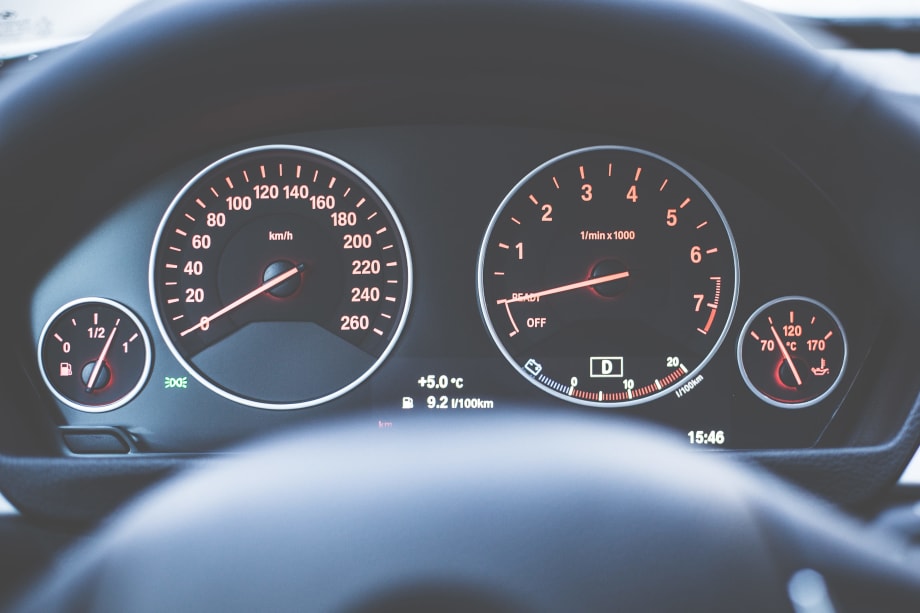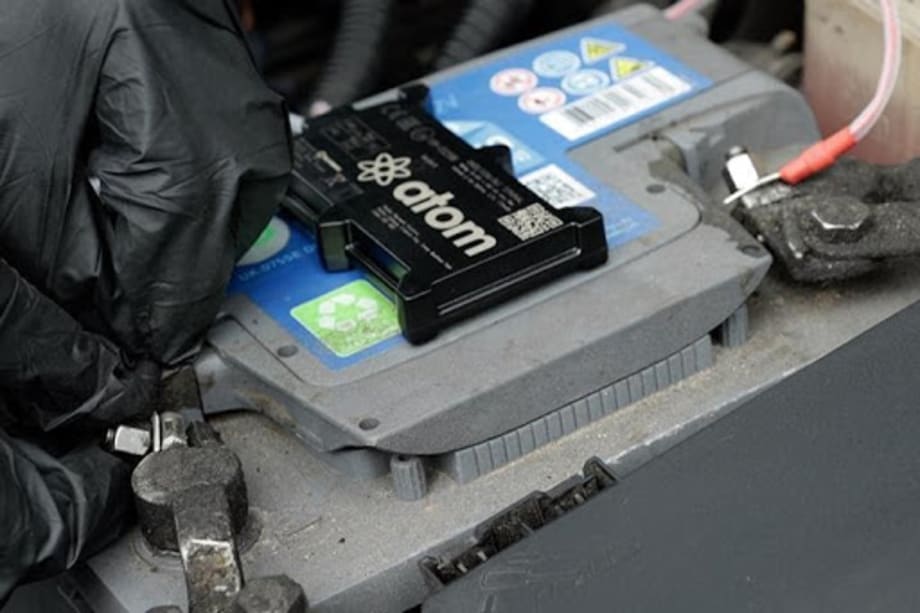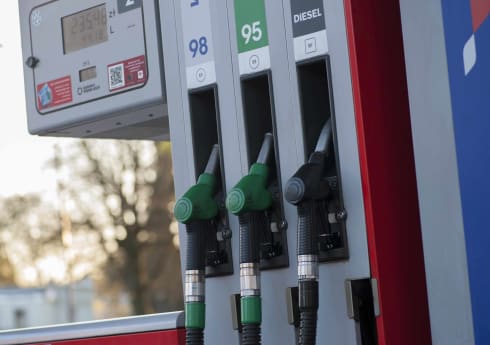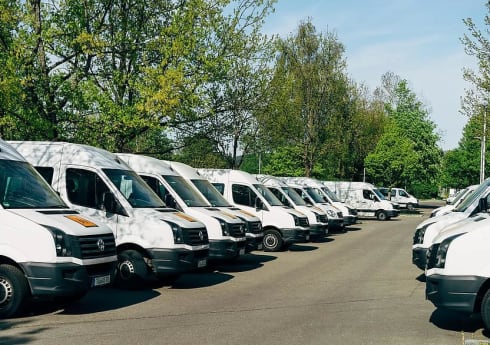Self-Install Telematics Devices: How they benefit businesses
Self-install telematic devices are some of the best and most affordable tracking tools on the market. These devices can be fitted by yourself with no professional help required.
Telematics devices benefit your business in many ways. Mostly, these black boxes let you keep track of your vehicles and drivers’ behaviour.
(Updated Mon, 20 May 2024)

Using vehicle tracking is a great way for businesses to manage their vehicle fleet more efficiently. You can track the productivity of each driver. Using a self-install vehicle-tracking device can be a cost-effective way of doing it.
Our guide gives you the information you need to decide if a self-install tracker is likely to meet your needs.
How does a self-installed telematics device work?
It sends a signal 24/7 to a cloud server, that then displays the vehicle location to you on a map. This means you can see where all your vehicles are, at any time.
For some types of business, it’s useful to know who is the nearest driver in relation to an upcoming job. For some fleets, it’s important to double-check if drivers really are where they say they are.
The telematics device stores the journey history. Fleet managers can check back on your driver’s stops and times. Here, you get to see totals of all the breaks they’ve taken during each day or week.
Your self-install device has even more handy features. The device creates timesheets for each driver. These update in almost real-time and are downloadable whenever you want them.
This means you can make sure your car or van drivers are being efficient and sticking to agreed break times. You can check that the mileage they have clocked up was all work for your company.
What does a self-install telematics device do?
A self-installed vehicle tracking device is a GPS tracker. To install it, wire it onto the vehicle battery. After that, connect it to your account in the provider’s cloud-based software.
They can be fitted to any moving vehicle with a battery, including cars, vans, caravans, tractors and even boats!
Here are just a few things these magical little trackers can do:
Set up geofences in the software
Imagine a line drawn around an area on a map. This is a geofence.
You can get app alerts or emails when any car, van or lorry driver enters or leaves a geofenced area. This makes it easy to manage your fleet. When a vehicle leaves a depot at a time it shouldn’t, you will get an alert.
Improve vehicle recovery odds
If the vehicle gets stolen, you can see where it is. Sadly, professional vehicle thieves know how to remove self-install vehicle-tracking devices. A telematics device is not fool proof, but it does improve your odds. If the tracker gets removed from a vehicle, an alert goes to you immediately to let you know.
Use telematics to boost your fleet management
Vehicle tracking can give you a bird’s eye view of your fleet at all times. That makes it way quicker and easier to manage all your drivers.
You can deal with breakdowns or accidents immediately. Managers, you can even check the driver’s dashcam footage or speeding incidents from your mobile phone.

Credit: Kinesisfleet
As a free comparison site, iCompario can help you find the right system for the right price.
Should I get a professionally installed telematics device instead?
Here’s what a professionally installed telematics device can do for you.
- Professionally installed vehicle tracking devices are not just GPS trackers, but can also have accelerometers.
- They are wired to the vehicle ignition and other components of the engine and braking system.
- These telematics devices can track and record driver behaviour.
What is the difference between sell-installed and professionally installed devices?
Other than who’s installing them, the two do have different features. Self install devices can only do so much. Here’s what self install devices can’t do.
| Driving habit | Increases risk of crashes or injury | Increases vehicle wear and tear | Wastes fuel | Bad publicity for your company |
| Speeding |
X |
X |
X |
X |
| Harsh accelerating |
X |
X |
X |
X |
| Cornering too fast |
X |
X |
X |
|
| Sudden braking |
X |
X |
X |
|
| Leaving the engine idling |
X |
How do professionally installed devices work?
These devices have between three and twelve wires connected to electric circuits in the vehicle. How many wires depends on what information you need.
You need a professional to install them! If you connect the wires the wrong way, the system will give you bad data.
Professionally installed systems do all the stuff a self-install device does, but with even more added extras!
Features
On top of all the features of self install telematics devices, professionally installed systems can do even more. These are some of the top features you need to know about.
Track driver behaviour
Vehicle-tracking devices record driving behaviours that cause damage over time to your vehicle. These bad habits make accidents more likely and waste fuel. The system that tracks this is an in-vehicle monitoring system, or IVMS, as it evaluates the driver.
The data collected includes how fast your driver goes. That includes if they go over the speed limit. Behaviours like breaking harshly and speeding around corners get recorded too.
See when your driver’s are idling with a telematics device
Most systems will also tell you if the engine is left idling when the vehicle is stopped. Putting an end to this bad habit can save a small fortune on fuel.
iCompario tip:
Professionally installed systems can improve driving standards and mean you make fewer insurance claims. You pay less for your fleet insurance and have less time with your vehicles off the road for repairs. The savings can be huge, so for many companies, these systems can easily pay for themselves many times over.
Cost of self-installed tracking devices

Credit: Piqsels
Vehicle-tracking systems are normally priced with an initial cost for the device and an ongoing monthly subscription to use the software and see your data.
The cost of having your hardware devices installed by a professional is generally included in the initial start-up price, rather than as a standalone fee.
The other cost to check is the monthly or yearly subscription fee to the software. A vehicle tracker is useless without the software that it sends the data to, and the cost of using this interface is usually scaled depending on the amount of information the installed device can provide you.
Some self-install vehicle tracking systems can cost less than £100 to get started.
iCompario tip:
With some providers, the device remains the property of the provider and you pay for using it while you subscribe to their system. It will then be removed if you stop using their service. Check the details of this when comparing providers.
Use our free comparison tool to find the right telematics system for the right price.
How do I install a vehicle-tracking device?
Self-install vehicle-tracking boxes can often be fitted to your vehicle in a matter of minutes. Indeed, the process requires few tools and technical knowledge., Even brand-new drivers should be able to fit their GPS tracker pretty quickly.
Many providers will send you a video showing you exactly how to do it, as well as written instructions.
You can install a vehicle-tracking device yourself in little time and with a minimal amount of mechanical experience. There are two wires to connect to the vehicle battery from which it takes its power and a means of sticking it onto the battery to stop it slipping.
Save money on installation costs
Self-installing a vehicle-tracker is worthwhile because it’s a quick job that can be carried out with minimal experience. This can save you a significant amount, as it won’t cost much of your time and the price of a professional installation is often considerably higher.
Avoid time off the road with self-installation
You will also save the cost of having your car, van, caravan or other asset off the road for several hours while a mechanic comes to fit a device for you.
See where your vehicles are in real-time
You gain the benefit of seeing where your vehicles are in real-time, taking greater control of your fleet.
With vehicle tracking, you can keep a close eye on new drivers. You can also ensure your vehicles are more secure — for example, by seeing immediately if they’re leaving your depot when they shouldn’t.
Great for small companies or low-mileage fleets
Self-install van trackers and car trackers are ideal for certain business types. We highly recommend self-installation for:
- Smaller companies
- For businesses whose drivers aren’t on the road all day
- Fleet managers who realistically don’t have the time or need to focus on reducing their insurance and vehicle maintenance costs.
- Trying vehicle-tracking for the first time
If you’ve never used vehicle-tracking before, the self-fitted approach is the ideal way to give it a try.
When is self-installing a vehicle-tracking device not worth it?
Sometimes you’ll need a more high-grade device to get the job done. In these cases, take a stiff upper lip and pay those extra pounds. It’s well worth it in the end. But do you need to?
Here’s when a professionally installed device will be better for your business or fleet.
You need more information for your reports
Professionally installed devices give more information. A self-install vehicle tracking system isn’t worthwhile if you really need more detailed data.
More data can get you driver behaviour metrics to help you achieve better driving and fewer insurance claims or vehicle repairs.
You want to reduce your insurance costs
Self-install devices can’t help you reduce insurance costs.
You can reduce your fleet insurance premiums quite impressively if you can reduce your number of fault-claims. In this case, a self-install vehicle tracker will not help you – you will need the driver-monitoring functionality of a professionally installed device.
These devices measure three driving behaviours that affect insurance premiums. These are whether vehicles are driven by night, or only in the daytime; whether drivers mostly use motorways or often travel on small roads; and the driver’s safety score from the in-vehicle monitoring system (IVMS).
| Insurance cost lower | Insurance cost higher | |
| What type of roads do your vehicles travel on? | Motorways | Side roads and country lanes |
| Do your drivers work at night, or only by day? | Daytime driving only | Night driving also |
| What is the average of your drivers’ IVMS scores? | More than 1 | Less than 1 |
Professionally installed devices can help you save more money on fuel
If your drivers are on the roads full time, or if you operate large vans that consume a lot of diesel, it makes sense to ensure they are driven economically. Cutting your fuel costs can be a big money saving, especially for fleets.
If you want to reduce fuel consumption by monitoring which drivers are wasteful a self-install tracker will not help. But a professionally installed device gives you the details you need to kick bad habits to the curb.
Self-install vehicle trackers can’t help you save money on repairs and parts
A professionally installed vehicle-tracking device can give data on driving standards. Send this data to your drivers in reports to boost their performance. You can use this data to incentivise your drivers to drive carefully and cut habits that harm the working parts of your vehicles.
How to get self-install telematic devices
Try iCompario’s vehicle-tracking self-installation comparison tool.
We’ve given you all the information you need to make an informed decision about whether you wish to get a professionally fitted vehicle-tracking device or a simpler self-install option.
To get up-to-date prices for either option, you can enter your details in a quick form and get a quote from iCompario.
iCompario is the free online marketplace for business products and services, where managers and owners can research and rapidly compare fuel cards, vehicle tracking systems, insurance, telecoms and other essentials. The team follows up online queries by telephone so every site visitor finds their ideal, future-proof product at the best price possible.



